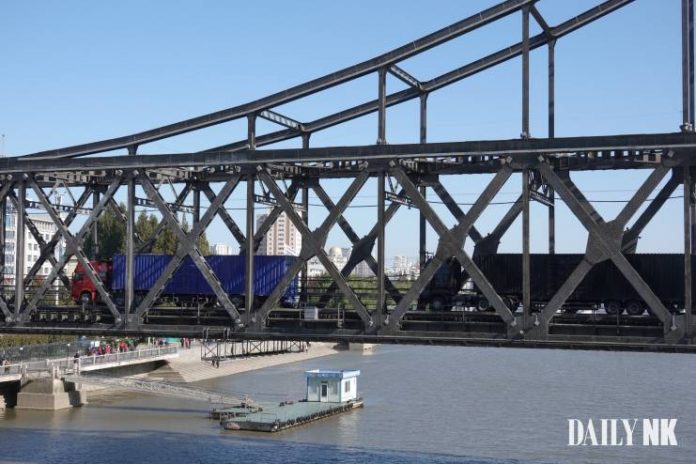
North Korean authorities are disbanding trading firms that fail to produce results, and restructuring the trade sector to give the Cabinet direct supervision over the import and export details of all trading companies, as well as their profits.
According to multiple Daily NK sources in North Korea on Friday, the authorities have been placing trading companies across the nation under the direct control of the Cabinet. Trading companies that have failed to take part in import or export activity over the last couple of years are being merged out of existence, even if they are under the jurisdiction of “special bodies” like the security services.
The authorities have also created a report system that allows the Cabinet to manage or supervise trading companies’ accounting records and cash flow.
Relatedly, the trade management bureau of the people’s committee of South Pyongan Province has reportedly started merging city and county trading companies, shutting down non-performing firms.
Additionally, the authorities have reportedly taken measures to place Samhwa Trading Company, which had been attached to South Pyongan Province’s department of land management, under the Ministry of Land and Environment Protection.
North Korea has apparently started to structurally readjust the trade sector as part of efforts to restore the state’s “unitary trading system.”
In a report on economic affairs to the Supreme People’s Assembly in February, Premier Kim Tok Hun said he would continue to push activities to restore the state’s unitary trading system in the external economic relations sector.
North Korean authorities have granted enterprises some degree of trade autonomy since North Korean leader Kim Jong Un took power, but the premier’s comment could be seen as a declaration that the state would be the sole trading actor going forward.
North Korean authorities have begun merging trading companies and bringing them under Cabinet supervision as their first effort to restore the state’s unitary trading system in an apparent bid to resolve the problem of bloated trading companies making illicit gains.
In fact, North Korean authorities reportedly believe that with so many trading companies attached to either “special bodies” or regional party apparatuses, they are failing to “achieve” party policy.
The state is putting the brakes on trading companies importing items beyond the types and amounts permitted by the state to pad their own profits, condemning the practice as “anti-socialist and non-socialist behavior.”
Given that the books and trading details of even trading companies under the Central Committee, Ministry of State Security, Ministry of Social Security and Ministry of Defense will come under Cabinet scrutiny, the authorities appear quite determined to end corruption at trading companies attached to powerful institutions.
In particular, the shake up in the trading sector reportedly also aims to bolster the nation’s base for self-sufficiency in the face of protracted international sanctions.
That is, the authorities aim to break with the previous practice of letting trading companies import or deliver supplies needed for production at their own discretion. Instead, the authorities wish to domestically produce supplies whenever possible, while limiting imports to only those supplies the nation absolutely must import from abroad — and even then, through official requests to state agencies and with Cabinet approval.
North Korea’s moves appear related to shortages of foreign exchange. In a telephone conversation with Daily NK, Kim Seok-jin, a researcher at the Korea Institute for National Unification in South Korea, said North Korean authorities may have reached the point where they have to intensively manage their foreign exchange reserves, which are running low due to protracted international sanctions.
He further noted that Pyongyang’s latest measures seem aimed at managing insufficient foreign exchange reserves so that they are spent only on those imports the country absolutely needs.
Please direct any comments or questions about this article to dailynkenglish@uni-media.net.


















